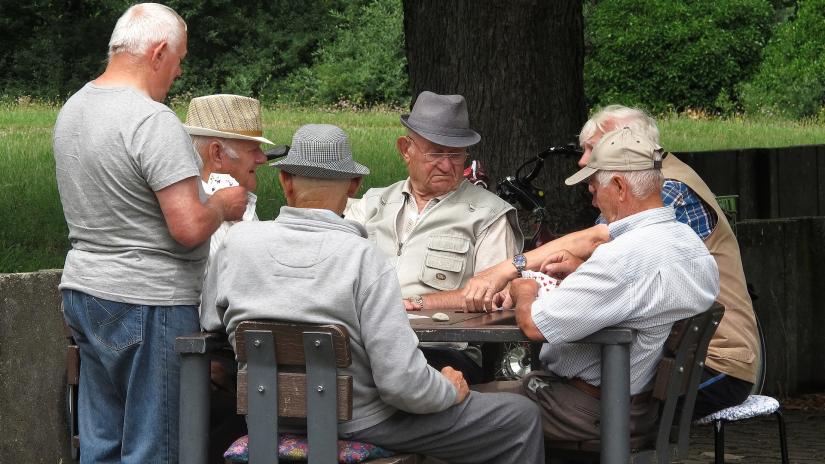Australian couples moving into retirement tend to maintain their social networks, and many see an improvement in their mental health and wellbeing, new research shows.

Image: Pixabay
Australian couples moving into retirement tend to maintain their social networks, and many see an improvement in their mental health and wellbeing, new research shows.
High levels of social connectedness are linked with better health and wellbeing, so this is good news for those with strong social ties. However, for those with low levels of support it suggests that policies and programs to increase support in retirement could improve wellbeing.
The World Health Organisation says social isolation and loneliness have a serious impact on older people’s physical and mental health, quality of life and longevity, comparable to other well-established risk factors such as smoking, obesity and physical inactivity.
“For some people social support might decrease when they retire, as they lose work connections or move home, while for others retirement brings more opportunities to strengthen ties or make new friends,” says co-author UTS economist Dr Nathan Kettlewell.
“We were interested to understand not only whether retirement brought changes to your own level of social support, mental health and wellbeing, but also whether your spouse’s retirement had an impact,” he says.
Using data from the Household, Income and Labour Dynamics in Australia (HILDA) Survey from 2001-2018, the researchers looked at 1600 partnered individuals who transitioned to retirement.
“We measured social support using survey questions that asked people about whether they have someone they feel they can talk to, or confide in, how many friends or visitors they have, and whether they often feel lonely,” says co-author Dr Jack Lam from the University of Queensland.
“Understanding how retirement impacts social support and wellbeing is important not only for those on the cusp of retirement, but also for government, not-for-profit and community organisations providing mental health and social support services,” he says.
To better understand the cause and effect relationship between retirement and wellbeing, the researchers focused on those who retired because they became eligible for the age pension, rather than due to sickness or job loss.
The study found that most people maintained their pre-retirement level of social support after either they, or their partner, retired.
Our research shows that while we don’t see significant changes to social connections, the shifts in mental health and wellbeing can be quite positive.
Dr Nathan Kettlewell
Women, and those with high social support, were more likely to see an improvement in mental wellbeing when they or their partner retired.
Both men and women saw an increase in ‘life satisfaction’ – a measure of how people evaluate their life as a whole rather than their current feelings – when they or their partner retired.
“Our research shows that while we don’t see significant changes to social connections, the shifts in mental health and wellbeing can be quite positive,” says Dr Kettlewell.
So, for an insight into what retirement might look like – take a look at your current social connections, and if needed, build your social networks for a happier, healthier future.
The study: Retirement, social support and mental well being: a couple level analysis is published in the European Journal of Health Economics.

